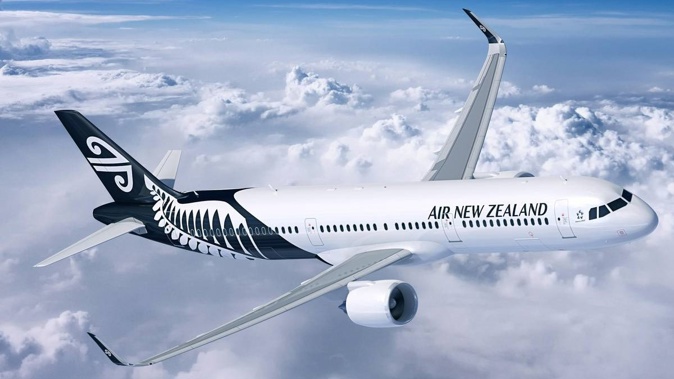
Air New Zealand has unveiled more than 180,000 cheap fares to mark the end of the requirement for physical distancing on planes.
From today physical distancing will not longer be required on public transport and planes - but the use of masks continues to be compulsory, Prime Minister Jacinda Ardern said.
Chief executive Greg Foran said today's announcement allowed the airline to make more seats available at cheaper prices.
"We're thrilled to be able to offer 160,000 of these fares for under $50, with 9000 of these available during the upcoming school holidays," he said.
"This is our way of saying thanks to our customers for their support over the past few months.
"While our borders are closed, we know Kiwis are keen to get out and explore or visit friends and family, so we want to make travel as easy as possible – and this is also great news for local tourism.''
The airline is also removing change fees for domestic flights booked for travel up until March 2021.
New rules for planes, public transport explained
Ardern has announced the immediate easing of physical distancing, while the country's Covid-19 alert levels remain the same until a review next Monday.
From today, airlines, buses and train operators do not need to maintain any seating restrictions, but mask use will continue to be compulsory, she said.
The Government has decided to extend alert level 2.5 in Auckland and to also keep the rest of the country at alert level 2.
Ardern said her expectation of airlines was that physical distancing would still be carried out while loading and disembarking passengers but could be eased while on board the plane.
"The use of masks will continue."
Ardern said the regional boundary around Auckland has "posed many challenges", and it was better to allow regional travel and maintain level 2 restrictions in the rest of the country for now.
The change in physical distancing on planes and public transit was based on health advice, she said.
A Ministry of Health spokesperson said with the use of face coverings, our updated advice is that physical distancing should be maintained where possible.
However, it is not required on either domestic flights or on public transport such as trains, buses and ferries, they said/
The spokesperson said: "Reports are that passengers on public transport are taking the use of face coverings seriously and regularly scanning QR codes on all forms of transport. This along with electronic ticketing on airlines means we can contract trace rapidly if required.
"The advisory by Ministry of Health and Ministry of Transport for recommended seating configurations on public transport that promoted physical distancing have now been revoked, effective immediately.
The NZ Aviation Coalition says the removal of physical distancing seating requirements on planes was great news for airlines.
It cleared the way for airlines to be able to fill their planes. For travellers this will mean more available seats, more flights and affordable fares to choose from, said co-chair Justin Tighe-Umbers.
''With school holidays coming up so many more Kiwis will now be able to get out around the country, visit loved ones or head on holiday.''
It was a pragmatic decision from the Ministry of Health which recognised that mandatory masks for everyone on board and existing airline measures will keep travellers safe.
''Having seating restrictions removed from alert level 2 means that the domestic network can continue to operate without losing up to three quarters of normal capacity which is impossible for airlines to keep up,'' he said.
Take your Radio, Podcasts and Music with you









